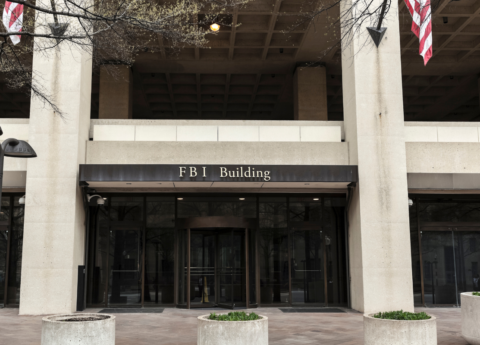Current law in Kentucky mandates that children charged with certain felony offenses be prosecuted as adults, rather than as juveniles. The current law limits the discretion of prosecutors and judges, which negatively impacts too many Kentucky children and does not enhance public safety. A recent proposal from Senator Westerfield, Senate Bill 87 (SB 87), would move Kentucky in the right direction by eliminating the mandatory transfer of children to adult court that currently exists in some cases.
Kentucky’s mandatory transfer allowance needs to be eliminated
Laws that mandated the transfer of children to adult court were first passed in Kentucky and across the country in the late 1990s and early 2000s as a misdirected attempt to address violent crime. Since then, a great deal of research has been done that shows prosecuting children as adults is harmful, costly and does not lead to safer communities. As a result of this research, and in an effort to focus more heavily on rehabilitation and treatment of children involved in the justice system, states have been reconsidering and amending juvenile transfer laws.
Under existing law, there are two ways children can be transferred from juvenile court to adult court in Kentucky:
- Discretionary transfers occur when the county attorney, after consultation with the commonwealth’s attorney, makes a motion to transfer a child. In considering the motion, the judge is required to review each specific case, and makes a determination based on the unique circumstances of the child and the case. Facts and circumstances the judge is required to consider include the seriousness and type of offense, maturity of the child, the child’s prior record, the child’s and community’s best interest, prospects of adequate public protection, the likelihood of reasonable rehabilitation and evidence of the child’s participation in a gang.
- Mandatory transfers require the transfer of any child who is at least 14 years of age who is charged with any felony in which a firearm, whether operational or not, was used. This can include a situation where the child did not have or use a firearm him or herself, but was with someone who did possess or use a gun. The mandatory transfer occurs without any action by the county attorney or review of the unique circumstances of the case by the judge. In fact, the judge has no say at all, and cannot stop a mandatory transfer even if the facts and circumstances indicate that the child should remain in juvenile court.
SB 87 takes an important step in the right direction by eliminating the mandatory/automatic transfer of children to adult court. If enacted, Kentucky will join eight other states, including Arkansas, Missouri and Tennessee that do not have a mandatory transfer statute.
For children as young as 14 charged with a felony when a gun is involved, SB 87 proposes that transfer to adult court become discretionary — enabling the individual facts of each case to be considered — and that the felony not qualify the youth for transfer unless the gun (functional or not) is actually used by the child in the commission of the crime.
Transfer of youth to adult court is harmful
Significant research confirms that the transfer of children to adult court actually reduces public safety and results in numerous harms to those children. They face more severe punishments that, unlike those in the juvenile system, do not focus on rehabilitation. One study found that children prosecuted as adults in Florida were 34% more likely to commit additional felony offenses on average than children who committed a similar initial offense but remained in the juvenile system. Research has also found that transferring juveniles to the adult system generally increases, rather than decreases, rates of violence for these youth. Meanwhile, research does not indicate that harsh transfer laws deter juveniles from committing crimes.
The collateral consequences of a felony conviction are well understood to have devastating impacts on an individual’s employment, housing, health and more. Youth transferred to adult court have worse economic outcomes later in life than those remaining in the juvenile system. Further, children who receive a felony conviction in adult court have a felony record that is much harder to expunge than a juvenile record.
SB 87 would be a positive step
Given what the research says about transferred youth being more likely to end up incarcerated as adults, SB 87 could play a role in reducing incarceration in the state at a time when the number of people in jails and prisons is continuing to increase and related costs are soaring.
Mandatory transfer laws harm children and our communities, and they do not make Kentucky safer. The General Assembly should remove this ineffective and harmful law by passing SB 87.




